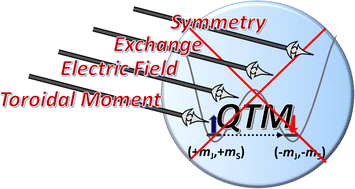Strategies to quench quantum tunneling of magnetization in lanthanide single molecule magnets
Abstract
Enhancing blocking temperature (TB) is one of the holy grails in Single Molecule Magnets(SMMs), as any future potential application in this class of molecules is directly correlated to this parameter. Among many factors contributing to a reduction of TB value, Quantum Tunnelling of Magnetisation (QTM), a phenomenon that is a curse or a blessing based on the application sought after, tops the list. Theoretical tools based on density functional and ab initio CASSCF/RASSI-SO methods have played a prominent role in estimating various spin Hamiltonian parameters and establishing the mechanism of magnetization relaxation in this class of molecules. Particularly, various strategies to quench QTM effects go hand-in-hand with experiments, and different methods proposed to quell QTM effects are scattered in the literature. In this perspective, we have explored various approaches that are proposed in the literature to quench QTM effects, and these include the role of (i) local symmetry of lanthanides, (ii) super-exchange interaction in {3d–4f} complexes, (iii) direct-exchange interaction in {radical-4f} and metal–metal bonded complexes to suppress the QTM, (iv) utilizing external stimuli such as an electric field or pressure to modulate the QTM and (v) avoiding QTM effects by stabilising toroidal states in 4f and {3d–4f} clusters. We believe the strategies summarized here will help to design new-generation SMMs.

- This article is part of the themed collection: ChemComm Community – Dedicated Authors


 Please wait while we load your content...
Please wait while we load your content...